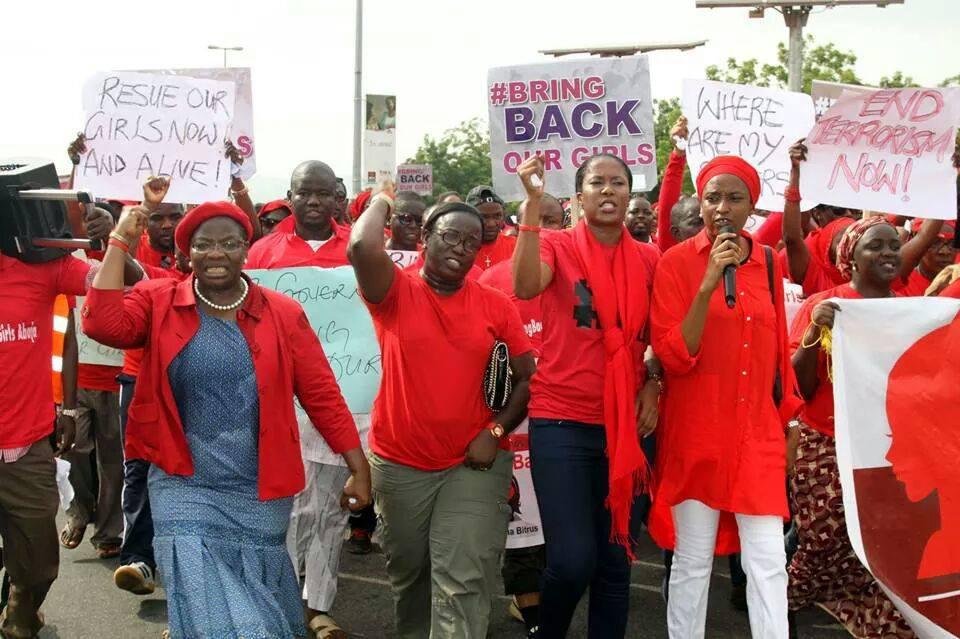Shonibare, a 2021 Ford Global Fellow, was a frontline activist in the #BringBackOurGirls movement.
Provided by Bukky Shonibare (photographer unknown)
The Ford Foundation is one of the largest Foundations in the world. Custodians of a $16B endowment, the Foundation makes $500M in grants annually. With the power of their purse, they have the opportunity to invest in real global change and with their Ford Global Fellowship, they are attempting to pull out many of the world’s current challenges from the root. Yesterday the Foundation announced the second cohort of their Global Fellowship for people “working to tackle global drivers of inequality”. The Foundation has committed $50M to the program which will run for 10 years.
Although this year’s cohort was only supposed to have 24 Fellows, the Foundation chose twice as many. In their press release the Ford Foundation wrote, “Compounded by vaccine inequity, job precarity, climate change, rising authoritarianism, and racial and gender inequity, COVID-19 has laid bare the crisis of inequality with a renewed urgency to combat it. In response, the Ford Foundation is scaling up its flagship global fellowship program to support leaders from communities who face injustice head on, and help them cultivate their ideas and energy in solving long-standing inequalities exposed or exacerbated by the pandemic.”
The journey for potential Ford Global Fellows starts by being nominated. The Ford Foundation leverages their relationships with governments, private sector players and civic organizations and actors around the world to identify proximate leaders. “We know it matters who’s in the pipeline of the selection process from the beginning,” said Adria Goodson, the Director of the Ford Global Fellowship. Nominees are then given additional support throughout the application process, including translated materials and access to technology, to ensure an inclusive process.
This year, 220 global nominators helped the Ford Foundation to receive 310 applications. Ultimately 48 leaders were chosen, 60% of whom are female, from around the world. These leaders will join the 24 fellows from the 2020 cohort for 18 months of intensive programming and will all receive a $25,000 award. “Our aspiration for the fellowship is to create a collaborative justice laboratory where individual leaders who are place-based and proximate to issues can design and reimagine solutions for combating inequality across regions and in different contexts,” said Goodson.
The 2021 cohort includes 7 women from across Africa tackling different forms of inequality.
Bukky Shonibare, from Nigeria, is the Founder and Executive Director of Invictus Africa, an organization addressing gender inequalities through rights-based advocacy, legal reviews, and capacity development. Her work is recognized globally. She is a founding strategic member of the #BringBackOurGirls movement. The hashtag was used by global leaders such as Pope Francis and Michelle Obama and celebrities such as Kim Kardashian, to advocate for the release of the 276 schoolgirls abducted in Chibok, Nigeria by Boko Haram in 2014. 166 of the girls have been released so far.
Ekaete Judith Umoh, also from Nigeria, is Country Director at CBM Global Disability Inclusion, where she leads a diverse team of inclusion experts fighting to end the circle of poverty and disability in Nigeria. She was the first woman elected National President of the Joint National Association of Persons with Disabilities where she spearheaded the passing of a comprehensive national law protecting the rights of people with disabilities. She is indefatigable. That law was the result of 17 years of advocacy.
Angela Benedicto is the executive director of Wotesawa Domestic Workers Organization, a nonprofit organization in Tanzania working for the rights of domestic workers. According to the Population Council, a non-profit research organization, “Domestic work is characterized by excessive working hours, extremely low pay or no pay at all, and conditions that make the profession exploitative in many cases.” In many cases, it is the only work available to the most disadvantaged girls and women.
Duduetsang Makuse is working to build “a world world where every person in Southern Africa has an opportunity to be co-creators of an inclusive digital reality that benefits them.” Her work is important and timely. Africa is coming online. There are more people in Africa accessing the internet on a monthly basis than in North America, Latin America, or the Middle East.
Keamogetswe Seipato, also from South Africa, is a social justice activist and feminist. Her vision is “for those on the margins of society to collectively reconstruct the world and dismantle extractivist, profit driven motives that have created the multiple crises we are facing.” Extractive industries, such as mining, have been central to the South African economy for more than 150 years. South Africa is the world’s largest producer of several minerals such as platinum and chrome and the third largest global supplier of coal.
Jabhisane Pinky Langa, a feminist activist working on women’s education and economic empowerment, is also combatting the injustice caused by extractive industries in South Africa. She recently ran a study “with women from communities with high unemployment affected by mining, looking at why and how these communities are not given the resources they need.”
Farida Bemba Nabourema is a Togolese social activist, a pan africanist and a writer. Togo is a small West African country directly to the east of Ghana. The current president, Faure Gnassingbe , succeeded his father, who according to the BBC, “died in 2005 after ruling the country with an iron fist for 38 years”. “The military installed Faure Gnassingbe as president, but following intense domestic and international pressure he called elections. Hundreds died challenging his victory in those polls,” continued the BBC report. Nabourema is a published author whose book, La Pression de Oppression, highlights the need for youth and women to be politically engaged.
No matter which facet of inequality these women are dedicating their lives to fighting, they will find support in the other men and women in the Fellowship program working to fight these same injustices in Africa and around the world.




